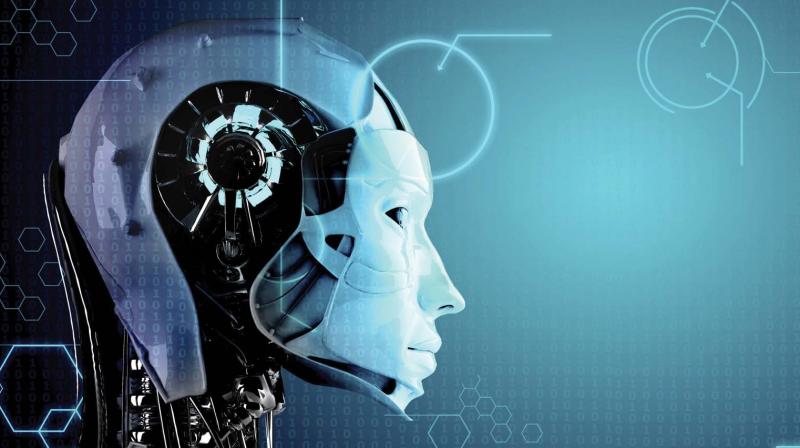Artificial Intelligence A glimpse into the building block of the future

It is 1955, and in the corridors of RAND (Research and Development) Corporation, America’s non-profit global policy think-tank, a printer is printing out a map using punctuation marks and symbols. An innocuous, regular scenario? Maybe, but it was also the moment that inspired the development of a phenomenon that is touted be the fundamental determinant of future societies - Artificial Intelligence.
Herbert A. Simon, a political scientist, Allen Newell, a researcher in computer science and cognitive psychology and Cliff Shaw, a programmer par excellence, came together after that fateful moment of observing the printer. Simon realized a machine’s manipulative capabilities that could simulate decision making, akin to the process of human thought. Thus began their journey to create the Logic Theorist, a program engineered to mimic the problem-solving skills of a human being which are also revered as ‘the first artificial intelligence program.’
Cut to 2017 and AI seems to be the only thing everyone is talking about. Cutting across every industrial domain, AI and bots have established their stronghold as the technology of the future through their ability to analyze cause and effect relationships and train accordingly. Ajay Shrivastava, Chief Technology Officer, Knowlarity Communications says that by training machines to identify what makes users/audiences/listeners react in a particular manner (trust, engage, listen, and act) and then implementing the data on specific users for optimum effect creates an intelligent machine that can transform the way we communicate. This holds all the more merit for business communications, which have become increasingly complex with multiple communication routes such as phone, messaging, social media, mailers etc. Furthermore, an average user’s dislike of the IVR process that includes cumbersome digit entries and unnecessary option descriptions necessitated a need for a much-evolved mode of machine interaction. In such a scenario, AI and bots present businesses with the following advantages:
Convenience- Bots, with their easy adaptability and automatic updating of data, do not require periodic maintenance or overhauling of infrastructure. Furthermore, it is extremely easy to operate a large organization through AI and bots as they can easily be centrally implemented.
Personalization- Imagine the feeling when you receive a call which reminds you of your child’s next vaccination date in the booming baritone of Amitabh Bachchan. This, and many more such innovations, become possible with AI-powered bots. Organizations can customize the voice texture, accent, volume, stress words, language etc as per customer preferences. AI uses algorithms built from years of audience perception analysis and communication research, thus enriching the communication on a wide range of characteristics. For instance, AI also enables a business to implement Text-to-Speech conversion and Automatic Speech Recognition based on programs identifying patterns to facilitate smoother customer interaction.
Exhaustive data coverage and analysis- While it is humanly impossible for executives and management to analyze each and every call while interpreting data, leading to a skewed data set, AI evaluates each and every call or query to provide a huge canvas of information. This leads to a more just and fair representation of data that results in a far more accurate analysis, hence resulting in perfect business decisions.
Reduction in operative costs- An AI bot can perform a job relentlessly and does not require heavy machinery in order to work. It is mostly a software-based system that can integrate very easily into any organization’s administrative panel and through regularly developing cognitive thinking, it can identify problems and inform the owner about the same.
24x7 operations- Those businesses that have operations or customers calling from different countries need to imperatively employ an AI-powered bot in their offices today. This is because AI can receive or make calls 24x7, thus ensuring that the business does not lose a consumer while performing continuous sales or promotion activity or during inactive hours. This leaves a positive impression on the customers while not compromising on the revenue stream of the company.
Parity in evaluation- AI does not distinguish between candidates while evaluating performances on the pre-existing bias. It tries to make decisions based on complete logic and cognitive development skill as learned from humans. Thus, it ends up making decisions that may not be emotionally appealing, but are perfectly logical at that point in time.
A recent research estimated that by 2035, automation in information and communication, manufacturing and financial services etc. may result in a 38% increase by 2035 and cause a $14 trillion increase in the gross value added to the worth of the entire industry. For that to happen, it is critical for businesses to act immediately. The most important factor for successful implementation of AI is human-AI integration, as only then can the tool be properly utilized to achieve organizational goals. As the situation in RAND suggested, although the machine did print out an immaculate map with just random punctuation marks, it needed a spectacled political scientist to spot the revolutionary potential that hid within such an innocuous act.

